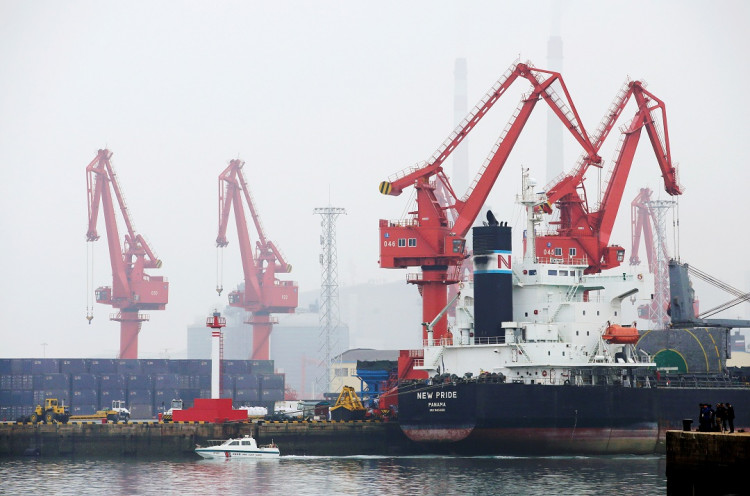China's exports to the U.S. plunged 33% in August, the steepest drop in months, even as shipments to other regions cushioned the blow and kept Beijing on course for a record annual trade surplus. Customs data released Monday showed overall export growth slowing to 4.4% year-over-year, the weakest pace since February, underscoring the pressure on Chinese manufacturers as U.S. President Donald Trump's tariff measures ripple through global trade.
Imports from the U.S. also contracted sharply, falling 16% compared with a year earlier. Across all markets, China's imports rose just 1.3%, missing economists' expectations and signaling persistent weakness in domestic demand. The trade balance for the month remained hefty, with a surplus of $102 billion.
The decline in U.S.-bound shipments reflects both Trump's escalating scrutiny of transshipments and the fading boost from last year's temporary trade truce. Zichun Huang, an economist at Capital Economics, noted that "with the temporary boost from the U.S.-China trade truce fading and the U.S. raising tariffs on shipments rerouted via other countries, exports are likely to come under pressure in the near term."
Chinese exporters are increasingly turning to alternative markets. Shipments to the European Union rose 10.4% in August, while sales to the Association of Southeast Asian Nations jumped 22.5% and exports to Africa climbed nearly 26%. "Chinese exporters have been pushing for higher market share in other countries due to weak domestic demand in China," said Zhiwei Zhang, chief economist at Pinpoint Asset Management.
The strategy has kept Beijing's overall export machine humming. In the first eight months of 2025, exports to the U.S. fell 15.5%, while sales to the EU, ASEAN, Africa, and Latin America rose 7.7%, 14.6%, 24.6%, and nearly 6% respectively. China's total trade surplus over that period reached $785 billion, nearly one-third higher than last year's pace, putting the country on track to surpass $1.2 trillion for 2025.
Yet the headline numbers mask growing stress. Industrial profits fell almost 2% through July as exporters cut prices to stay competitive. Export prices have declined for more than a year, forcing firms to increase shipment volumes. Shanghai's port handled a record number of containers in August, while national terminals processed more than 6.5 million containers weekly for five straight weeks.
Trump's tariff policy remains a key risk. Washington has maintained duties of about 55% on Chinese imports and in July added a 40% levy on goods it determines were rerouted through third countries. Trump has also threatened a 200% tariff if Beijing fails to increase rare-earth exports. Customs data showed China's rare-earth shipments rose 22.6% in August to 5,792.8 metric tons.






